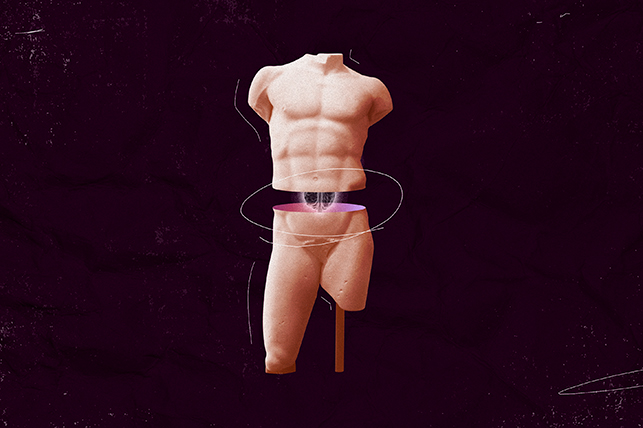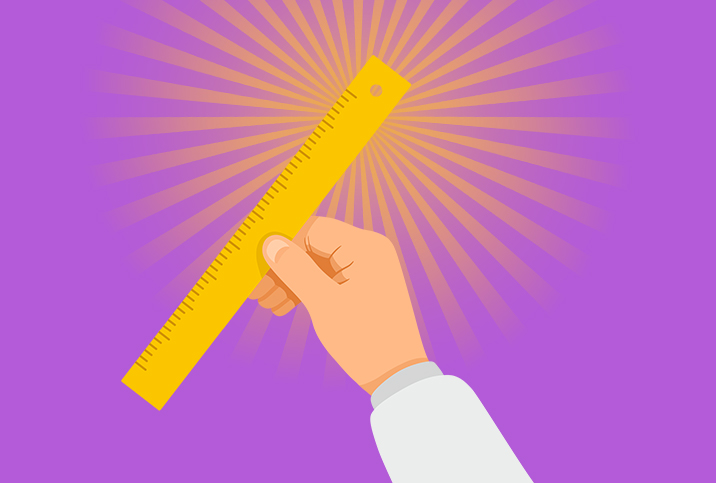Can I Live a Normal Life—and Enjoy Sex—Without a Prostate?

There was a time when having surgery to remove the prostate gland—a prostatectomy—was more or less thought to signal the end of a man's sex life.
The prostate gland is a hidden yet vital component in the male reproductive system, with delicate nerves and arteries surrounding it that provide blood flow and sensation to the penis. Collateral damage to these structures was once common when this surgery was new, and it often resulted in long-term erectile problems and other sexual health issues.
That's not necessarily the case today. With something called "nerve-sparing surgery" and the use of delicate, precise robotics in the operating room, this kind of damage can often be minimized.
To be sure, losing your prostate gland to prostate cancer has a profound effect on how the rest of the reproductive system functions. Today, though, men who have had a prostatectomy can usually enjoy fulfilling sex lives, as long as they're prepared for some changes.
Find out what might be different about your sex life post-prostatectomy, what men and their partners can expect afterward, and how they can work together to create a new sex life that's just as rich and rewarding as what they had before.
How does a prostatectomy affect male sexual health?
The prostate gland's main function is to provide the bulk of the seminal fluid released during ejaculation. Without a prostate gland, there likely won't be any fluid to accompany an orgasm.
The second important concept about a post-prostatectomy sex life is understanding that orgasm, ejaculation, erections and the pleasurable sensation of sex are separate events that don't all have to occur together.
"What I tell them all to expect regardless is a dry orgasm," said Neel Parekh, M.D., a men's fertility and sexual health specialist at Cleveland Clinic. "You're not likely to see any fluid expelled. You'll still be able to orgasm, you'll still have the pleasure sensation, but you won't have the ejaculate."
What about erections?
The main concern for many men considering life after losing their prostate gland is erectile function. In truth, even with the best robotic nerve-sparing surgery, there will be at least temporary damage to the nerves that affect erectile function.
"The cavernous nerves are the ones that are plastered right on the prostate," said Amy Pearlman, M.D., a men's health specialist and co-founder of Prime Institute in Fort Lauderdale, Florida. "Even just peeling them off is going to result in neuropraxia [nerve injury]. Now, it doesn't mean it's going to be a permanent neuropraxia, but there is going to be temporary damage to the nerves because they've been stretched."
Even if the nerves are saved during a prostatectomy, the outlook for most men is erectile dysfunction (ED) for at least several months while the nerves recover. Estimates indicate 30 percent to 80 percent of men who have a prostatectomy experience some level of ED. Within a year, about 40 percent to 50 percent of men return to presurgery erectile function, according to Johns Hopkins Medicine.
It can take up to two years to fully recover erectile function, depending on your overall health, comorbidities and age. How well your recovery goes is heavily dictated by your presurgery erectile function.
"No one's erection gets better after prostate cancer treatment," Pearlman said. "It really depends on a couple of factors, and the big one is their pre-prostatectomy erectile function. So if their presurgery erectile function was great and they didn't need to take any medication, then they might be able to get good erections afterward without any issues. Now there are so many different therapies, so it's not that we can't help them. But really, it's just a question of expectation."
Another side effect men can expect is a change in their penis size. When a surgeon takes out the prostate, it almost invariably is going to result in a slight decrease in the length of the penis.
"I tell them all their penis isn't going to look the same," Parekh said. "You're going to lose a centimeter or two of length after the surgery. Most guys are shocked to hear that."
Methods exist to restore some of that length, including traction devices. Don't expect more length than before the procedure, but some of it can be restored.
What can a partner expect post-prostatectomy?
It should be clear by now that a prostatectomy is going to change a couple's sex life.
With open conversation—perhaps even time with a sex therapist sex—can still be rewarding, even in the months following surgery when erections might not work as well.
"What the patient and their partner need to understand is that their sex life is going to look different after prostate treatment," Pearlman said. "And so it's embracing [the idea] that 'different' can also be good; maybe better, maybe sometimes not as good. But it can still happen. It just requires some creativity and communication, maybe bringing in different sex toys and tools, bringing in vacuum pumps and constriction bands. It's really just looking at it like, this is what's going on, so how do you both satisfy your needs in these changing circumstances?"
Another important consideration for the partner of someone who has had a prostatectomy is to understand these changes are not a reflection of how the man feels about them. If the man's sexual appetite and desires shift after a prostatectomy, it's just the way the body works. It might not only be his erectile function, either. If he's on androgen deprivation therapy afterward, his libido may suffer, too.
"The important thing for the partner to know is that it's not them. It's just a result of a treatment on the prostate tissue," Pearlman said. "So many partners think it's them and maybe their partner is no longer attracted to them, but it's really just based on anatomy and the associated surgical results."
Conclusions
Having a mutually fulfilling sex life with a partner who has had a radical prostatectomy is a reality for a fair number of people these days.
As with every other aspect of our sex lives, setting reasonable expectations and being attentive to your partner's needs is the key—along with not being afraid to ask for help.


















